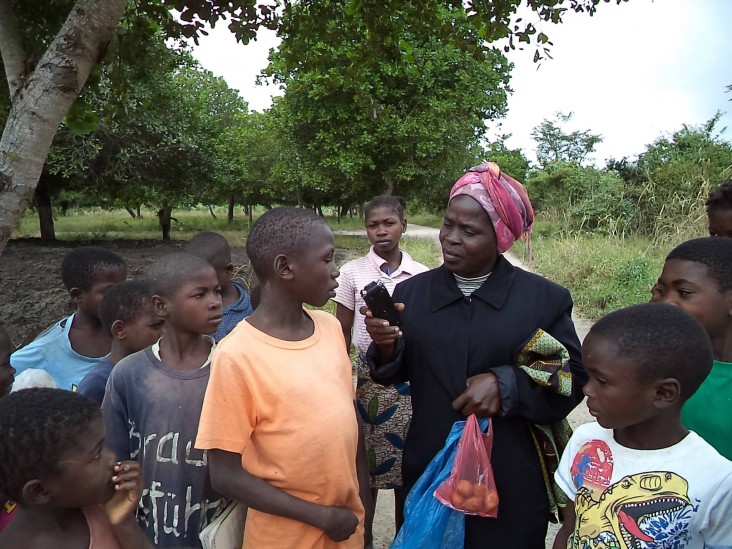Speeches Shim

January 2016—Albertina Luís is a community radio journalist in northern Mozambique where, recently, the number of cases of sexual and gender-based violence against women and girls has risen. Despite this trend, survivor reporting rates remain very low due to fear of retaliation and ignorance of survivor rights.
With support from USAID’s Media Strengthening Program for Mozambique, Luís is using her radio programs to generate awareness about the issue and the resources that exist to protect women from violence.
Prior to working with the project, Luís admits she did not fully engage her community or collect in-depth information for her reporting. Now, she uses her investigative journalism skills to bring high-quality information to her community on important issues, including the increasing number of sexual and gender-based violence cases.
“I realized that an interview is a lot more than gathering information for a news piece,” said Luís. “By talking to survivors, perpetrators, community leaders, and police departments, I could actually promote changes within communities that improve lives.”
The project also has linked media and civil society to work together to advocate for and protect women’s rights and freedom of expression, among other key issues in Mozambique. Luís’s partnership with district-level associations focused on sexual and gender-based violence has enriched discussions about harmful cultural practices and beliefs that discriminate against women and put their safety at risk. This collaboration has ultimately contributed to safeguarding women's rights and improving their lives.
For example, during the rainy season, families living in flood-affected areas moved to tents in settlement camps when they lost their homes. The single women were placed farther from the rest of the group in a location with very poor lighting, which led to several instances of reported rape. After Luís produced three radio programs about this situation, community leaders placed the women in tents closer to the rest of the group.
“After I learned the importance of diversifying my sources of information, I began working with local associations that are engaged in combatting sexual and gender-based violence,” said Luís. “I've now developed partnerships with several organizations, and they provide me with continuous information that I use to produce programs.”
The Media Strengthening Program aims to develop an open, diverse and self-sustaining Mozambican media sector that promotes debate and accountability. Among other activities, the project has trained 67 journalists to improve media coverage of gender-related issues, including sexual and gender-based violence. The program, which is implemented by the International Research and Exchanges Board, or IREX, runs from 2012 to 2017.
LINKS
Follow @USAIDMozambique, on Facebook, on Flickr, on YouTube

Comment
Make a general inquiry or suggest an improvement.